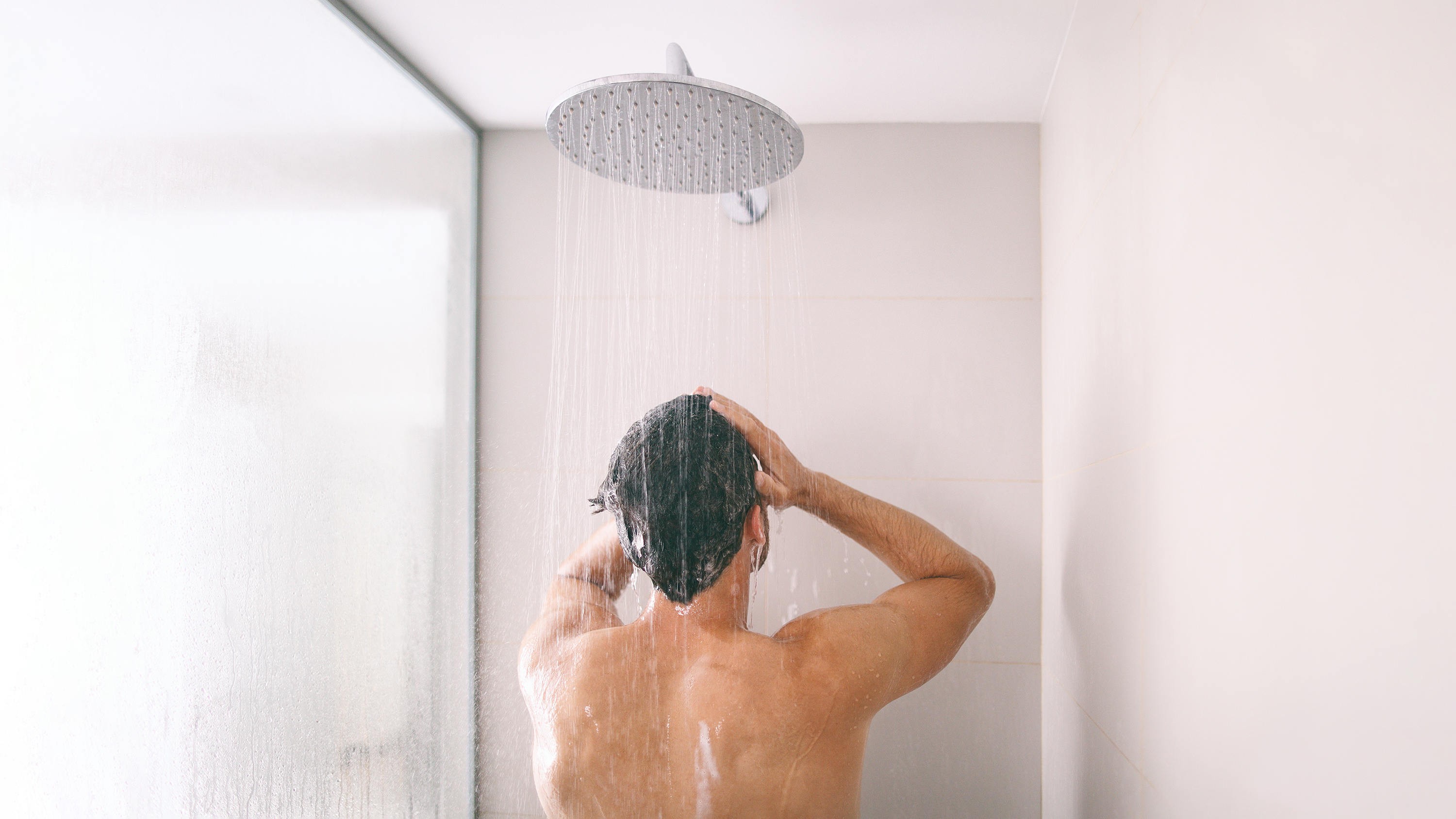Should men shampoo every day?
We ask the experts to find out if washing your mop daily is bad for your hair or not

Get all the latest news, reviews, deals and buying guides on gorgeous tech, home and active products from the T3 experts
You are now subscribed
Your newsletter sign-up was successful
Showering is part of most people's morning rituals. But should we be washing our hair every day while we’re in there? It’s a question that’s plagued the hair industry for years, with conflicting opinions flying around on what is truly the best for our locks.
When it comes to the male population, many will reach for the best shampoo for men and wash their mops daily - purely because they’re washing everything else anyway, without any thought as to whether it’s particularly good or bad for you.
“Typically, [our] male clients are after minimum effort for maximum results,” says Ricky Walters, founder of London’s most exclusive hair studio, Salon64. “Creatures of habits, a lot of men shampoo their hair every day purely out of routine.”
But could this be doing some serious damage? Or is it completely fine to give your hair some daily attention in the form of a squirt from the shampoo bottle? Let’s get to the bottom of this, once and for all, with the help of some of the UK’s top hair experts. And before we do, let’s just make something clear. Men’s hair is no different to women’s, and so the same advice applies, no matter what sex you are.
For and against: should we wash our hair every day?
If a man showers every day he should wash his hair every day, too, says Tony Maleedy, trichologist, cosmetic scientist and founder of Tony Maleedy Hair.
“The skin underneath the hair, the scalp, is approximately 7% of the total surface area of the entire skin, so why miss this out when you are washing the other 93%?” he proclaims.
“Also, a man’s skin tends to be oilier than a woman’s skin due to the stimulating effect of the male hormone testosterone on the oil-producing glands in the skin, so it’s a good idea to remove this excess oil as it can cause problems such as dandruff.”
However, Neagle Carthcart, Director of hair thickening brand Mane, advises that unless they have a particularly oily scalp, men do not need to wash their hair every day.
Get all the latest news, reviews, deals and buying guides on gorgeous tech, home and active products from the T3 experts
“Our hair behaves differently to the rest of our body that does frequently need soap,” he asserts.
“Our scalp produces its own oil called sebum, and excess washing of the hair can strip the scalp of this. When the natural sebum production is disrupted, the hair can actually become more oily over time.”
This, he says, is because our body’s natural reaction to dry skin is to produce more sebum to compensate for the loss of oil.
“Washing with shampoo a maximum of three days a week will allow your scalp to become balanced and the natural health of hair will improve over time.”
And that’s not all. In addition to an overly oily scalp, washing with conventional shampoos too frequently can disrupt the strands and follicles in other ways, Carthcart warns.
“Hair strands are delicate, and so that friction of rubbing it too frequently can disrupt the structure of the strand and water which is too hot will dry out the scalp, this leads to a weaker anchorage of the follicle which can result in some shedding,” he adds.
There is an exception to this rule, though, and that’s if you’re working out every day. But why? Because when we sweat, DHT is released. This is a by-product of the male hormone testosterone which is thought to be responsible for hair loss.
“If this is left to sit on the scalp, it can disrupt the life cycle of hair and cause hair loss. So, it is crucial that men shampoo after exercising,” says Carthcart.
What to use when washing
New hair cleansing preparations are being formulated every day, with many claiming to be magical two-in-one shampoo and conditioners. However, beauty experts such as chartered scientist, chemist, and a fellow of the Royal Society of Chemistry, Bruce Green, don’t recommend using such products. This is because, while they might work out more cost-effective, it’s impossible to get as good a performance from just one product.
“Shampoos by definition, tend to be Anionic formulations whereas conditioners tend to be
Cationic formulations and together they compete with each other,” Green explains.
Anionic refers to a negative charge that helps a surfactant (shampoo formula in this case) lift and suspend dirt from the hair and scalp. Cationic, on the other hand, refers to the positive charge within a conditioner that helps reduce static and prevent any flyaway and frizzy hair, which binds to keratin.
“So use a mild shampoo and apply sparingly, twice,” he adds. “Rinse well and towel dry, then apply a small amount of conditioner and massage it onto your hair. Leave for a few minutes, rinse and dry.”
Hair type is everything
If you can’t quite decide how often to wash your hair, Walters recommends thinking about the type of hair you have. For example, those with oily or greasy hair, as well as gents that wear a large amount of heavy product on their hair, will need to shampoo their hair far more often than those with dryer, thick hair. This is especially true where the natural oils in the scalp will in fact benefit the hair preventing frizz and fluff.
“And so the best way to decide how frequently to wash your hair is to look at what type of hair you have and its porosity,” he says.
For the best results, abide by Walters’ following porosity guide:
High Porosity: The higher the porosity, the dryer the hair, so wash it less. Wash once a week.
Medium Porosity: This is the most common type of hair and has a more balanced moisture content. Wash twice a week.
Low Porosity: This type of hair is usually naturally shiny, and thus is prone to sebum build up. Wash four plus times a week.
“Remember your body is a great barometer, so listen to it!,” he adds. “If your scalp feels oily or dirty then wash it but with a gentle, mild (or even baby) shampoo.”
Liked this? If you're looking for hair growth shampoo, then we'd recommend you read our guide on the best hair growth shampoo, where we go over the shampoos that slow down hair loss, and, if you're looking to shake up your hair care routine, you can also check out the best hair clippers so you can cut your hair at home, best hair dryers for quick, frizz-free drying for all hair types, and the best hair straighteners for sleek, frizz-free hair.

Lee Bell is a freelance journalist and copywriter specialising in all things technology, be it smart home innovation, fit-tech and grooming gadgets. From national newspapers to specialist-interest titles, Lee has written for some of the world’s most respected publications during his 15 years as a tech writer. Nowadays, he lives in Manchester, where - if he's not bashing at a keyboard - you'll probably find him doing yoga, building something out of wood or digging in the garden.
